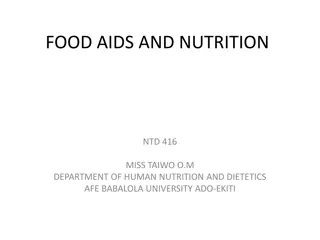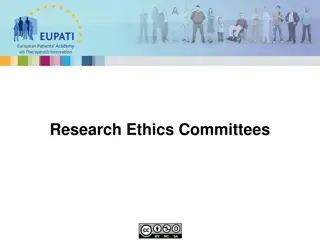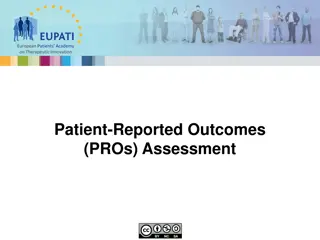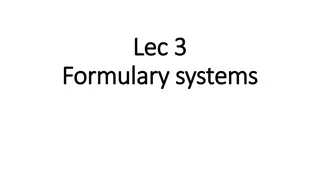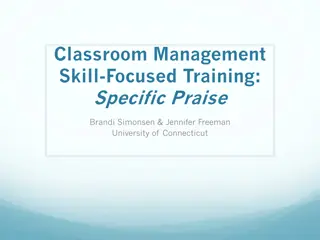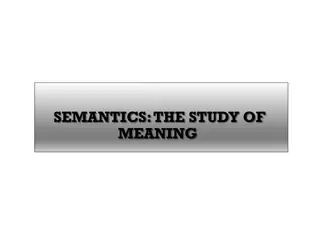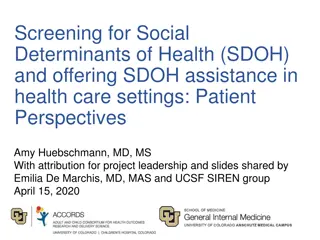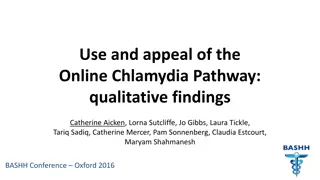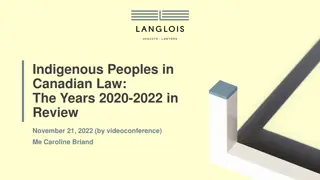Acceptability
Acceptability in communication is crucial for text receivers to understand and utilize language configurations as cohesive texts. The distinction between grammaticality and acceptability is explored, highlighting challenges in obtaining uniform judgments about sentences. Linguists' unique ability to judge sentence acceptability is discussed, along with strategies for correlating acceptability and grammaticality like those proposed by William Labov.
Download Presentation

Please find below an Image/Link to download the presentation.
The content on the website is provided AS IS for your information and personal use only. It may not be sold, licensed, or shared on other websites without obtaining consent from the author.If you encounter any issues during the download, it is possible that the publisher has removed the file from their server.
You are allowed to download the files provided on this website for personal or commercial use, subject to the condition that they are used lawfully. All files are the property of their respective owners.
The content on the website is provided AS IS for your information and personal use only. It may not be sold, licensed, or shared on other websites without obtaining consent from the author.
E N D
Presentation Transcript
Acceptability By: Dania Abbas M. Ali Acceptability By: Dania Abbas M. Ali
2 Acceptability Definition Acceptability is the text receiver s attitude in communication; acceptability in the sense that text receivers accept a language configuration as a cohesive and coherent text capable of utilization ( i.e., the ability to extract operating instructions from the utterance ). Acceptability and Grammaticality The importance of acceptability gradually emerged during research on how to verify a grammar as an account of all sentences allowed in a language. Ostensibly, one should be able to present lists of sentences to informants (native speakers giving views on their language) to be judged either grammatical or ungrammatical . The grammar must then be able to generate the former and exclude the latter. This requirement is vastly more ambitious than any in traditional school grammars, because it must expressly exclude vast numbers of sentences which nobody would ever be in danger of forming
3 Even in early investigations, uniform judgments about sentences were notoriously hard to obtain. Lambek sarcastically pointed out the disparity of attitudes: At one extreme, there are those who call every utterance a sentence, that is, any string of words ever mouthed by poet or peasant. At the other extreme, there are those who would declare cannibalism ungrammatical on the grounds that man does not belong to the class of food nouns. Lambek is addressing two opposed outlooks on language study: (a) the insistence on actually occurring grammatical data as all belonging to the language; and (b) the belief that a grammar can specify all possible relationships independently of actual occurrences. To mediate between these opposites, it has become customary to distinguish between grammaticality (what is stipulated by an abstract grammar) and acceptability (what is actually accepted in communication). So far, however, the correlation between these two notions is far from clear. We surmise that the crucial distinction is in fact between virtual systems and actualization procedures Actualization can apparently override the organization of virtual systems when appropriate motivation is present.
4 One simple and frequent practice has been for linguists to invent and judge their own sentences, i.e., to become the informants themselves for a linguist to depend on his own introspection as a means of obtaining data: lengthy exposure to a set of examples is likely to blur his judgments, and his reactions will inevitably he prejudiced by his general theoretical position and by the specific hypotheses that predict acceptability judgments . Snow and Meijer (1977) suggest indeed that linguists can develop a special, exceptional ability not found in normal language users; their tests showed that linguists agreed with themselves and each other to a much larger degree, and were much more willing to mark sentences ungrammatical on the basis of syntax alone.
A second means of correlating acceptability and grammaticality has been pursued especially by William Labov and his associates. He argues that the divergences of usage in various social groups can be accounted for by variable rules rather than strict, infallible ones. 5 Depending upon social factors, text producers would be able to choose among alternative rules or sets of rules. Labov s approach would introduce diversity into a grammar without weakening the distinction between grammatical and ungrammatical . A third means appears more promising than the first two, namely, to view the production and reception of texts (or sentences) as probabilistic operations. Grammar would be a set of fuzzy instructions in which well-formedness (conformity with the grammar) of sentences would be located somewhere on a graded scale. Sentences are regularly judged grammatical by an informant when it is easy to imagine possible contexts for them.
6 The correspondences between intentionality and acceptability are exceedingly intricate. Under stress or time pressure, people often produce utterances which they might feel disinclined to accept under normal circumstances; conversely, they accept utterances from other people which they would be most reluctant to produce. It has been demonstrated that people may not be aware of their own speaking styles, or those of their social group, and be surprised to hear authentic recordings. Also, people often go back and repair their utterances when deemed unsatisfactory, even though their knowledge of the language has not changed at that moment. In a wider sense of the term, acceptability would subsume acceptance as the active willingness to participate in a discourse and share a goal. Acceptance is thus an action in its own right, and entails entering into discourse interaction, with all attendant consequences. Refusing acceptance is conventionally accomplished by explicit signals, e.g.: I m too busy for talking just now. I don t care to talk about it. The acceptance of other people s goals may arise from many diverse motivations.
7 Successful communication clearly demands the ability to detect or infer other participants goals on the basis of what they say. By the same token, text producers must be able to anticipate the receivers responses as supportive of or contrary to a plan. THWOMLY: We have been all summer in France, you know, and those French trains are all divided up into compartments.... On the way from Paris to Marseilles we had a funny experience. I was sitting next to a Frenchman who was getting off at Lyons...and he was dozing when we got in. So I [2] BENCHLEY: Did you get to France at all when you were away? [3] THWOMLY: This was in France that I m telling you about. On the way from Paris to Marseilles. We got into a railway carriage [4] BENCHLEY: The railway carriages there aren t like ours here, are they? I ve seen pictures of them, and they seem to he more like compartments of some sort. [5] THWOMLY (a little discouraged): That was a French railway carriage I was just describing to you. I sat next to a man
8 [6] BENCHLEY: A Frenchman? [7] THWOMLY: Sure, a Frenchman. That s the point. [8] BENCHLEY: Oh, I see. [9] THWOMLY: Well, the Frenchman was asleep, and when we got in I stumbled over his feet. So he woke up and said something in French which I couldn t understand ... [10] BENCHLEY: You were across the border into France, then? [11] THWOMLY (giving the whole thing up as a bad job ): And what did you do this summer?
9 This conversation, though somewhat fantastic, is a good illustration of how a discourse participant draws up a plan and predicts the contributions of others. If the others deny acceptance of the plan, thus violating the principle of cooperation, textuality can be impaired. It follows that an unwilling participant could block a discourse by refusing acceptance, e.g., by not recovering or upholding coherence. we used the notion of topic to describe text-world concepts with the greatest density of linkage to other concepts. Unless topic concepts are activated, the processing of the textual world is not feasible because there are no control centers to show the main ideas.
10 We can see from the examples how great a role is played by the context of communication with respect to acceptability. Far more is involved than a comparison of sentences with an all-purpose grammar. We must also consider factors like these: (a) how much knowledge is shared or conveyed among participants; (b) how the participants are trying to monitor or manage the situation; and (c) how the texts composing the discourse are related to each other.
11 Thank You Any questions? You can find me at @username & user@mail.me




